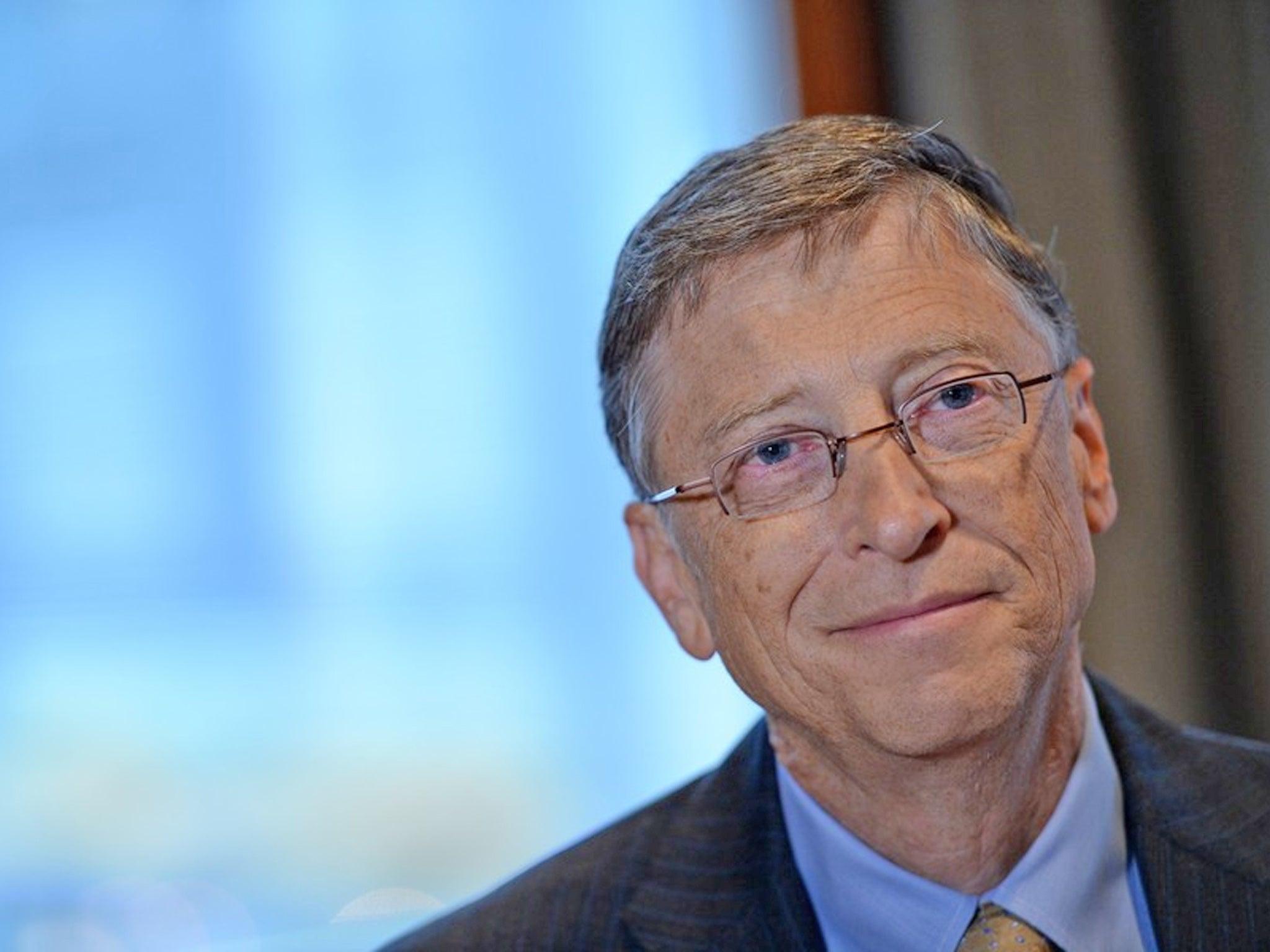Philanthropy is not just charity from the rich: it’s self-serving
Das Capital: Donors are free to channel funds to their chosen causes, some noble, some hubristic and some just plain odd

Your support helps us to tell the story
From reproductive rights to climate change to Big Tech, The Independent is on the ground when the story is developing. Whether it's investigating the financials of Elon Musk's pro-Trump PAC or producing our latest documentary, 'The A Word', which shines a light on the American women fighting for reproductive rights, we know how important it is to parse out the facts from the messaging.
At such a critical moment in US history, we need reporters on the ground. Your donation allows us to keep sending journalists to speak to both sides of the story.
The Independent is trusted by Americans across the entire political spectrum. And unlike many other quality news outlets, we choose not to lock Americans out of our reporting and analysis with paywalls. We believe quality journalism should be available to everyone, paid for by those who can afford it.
Your support makes all the difference.In an environment of concern about growing inequality, plutocrats, the top 1 per cent or perhaps 0.1 per cent of the population, argue that philanthropy can address the issue of income and wealth distribution, financing initiatives in a variety of social and cultural areas.
In reality, it is an exercise in damage control against any backlash by the less well-off. Its perspectives are self-serving, promoting views beneficial to the business and financial interests of the wealthy.
The paradox of philanthropy is that enrichment by various means paves the way for conspicuous generosity.
A blogger put it more bluntly: “The uber-rich try to do good once they have done their damage… I admire [Bill] Gates and [Warren] Buffett for their generosity… but loathe the system that put them at the top of the food chain.”
It is trickle-down economics. As the humourist Will Rogers joked during the Great Depression: “Money was all appropriated for the top in hopes that it would trickle down to the needy.”
Few individuals or corporations “give away” their money. It is placed in tax-efficient trusts or foundations, with the donor retaining substantial control. Contributions are generally tax deductible or protect wealth from the ravages of death, inheritance or estate duties.
The trust or foundation also provides employment and status for the donor, his or her family and associates. Donations and good works ensure business advantages and a post-retirement role.
Many legally reduce their tax liabilities. Increasingly, sophisticated international tax planning allows profits to be shifted from high-tax to low-tax jurisdictions, using licensing of registered patents, copyrights or trademarks, or intra-group financing arrangements.
Stateless and virtual internet-based firms have become masters of tax as well as information technology.
They claim that they are not “doing evil”, rather engaging in “self-taxation”, substituting philanthropic contributions for taxes. This allows them to target areas of specific interest to their owners and managers. In effect, private interests, rather than elected governments, determine how our taxes should be spent.
Philanthropy points to weaknesses in the taxation system in redistributing wealth and financing social projects. It undermines government policy, allowing private interests to determine priorities.
Donors are free to channel funds to their chosen causes, some noble, some hubristic and some just plain odd. The investment banker Ace Greenberg donated $1m to a hospital so that homeless men could get free Viagra.
Philanthropy can undermine social policy, where it reflects the idiosyncratic views of the donor and supplicant rather that a rigorous analysis of the issues and the best course of action.
The contradictions of philanthropy are easily illustrated. Virgin founder Sir Richard Branson vaunts his social conscience, but lives as a tax exile on Necker, his own private island.
Although active as an investor since 1970, George Soros gained prominence when he “broke the Bank of England” and sterling on Black Wednesday, 16 September 1992. Soros earned an estimated $1.1bn, while Black Wednesday cost the Treasury and the taxpayer an estimated $5bn.
Soros, through his foundation, supports free markets and democratic initiatives in emerging nations, particularly Eastern Europe. Detractors point out that hedge funds are major beneficiaries of the opening up of these economies.
During the Asian financial crisis of 1997-98, Mahathir Mohamad, the then Prime Minister of Malaysia, took a less benign view: “All these countries [in East Asia] have spent 40 years trying to build up their economies and a moron like Soros comes along with a lot of money to speculate and ruin things.”
Mahathir forgot to mention that many of Malaysia’s problems related to his own pharaonic projects, funded by borrowings from foreigners.
The Slovenian philosopher and psychoanalyst Slavoj Zizek captured the essence of Soros in the film The Reality of the Virtual: “Half the day he engages in the most ruthless financial exploitations, ruining the lives of hundreds of thousands, even millions. The other half [of the day] he just gives part of it back.”
Philanthropy resembles contributions to the weekly church plate, to expiate the sins of commercial life. The wealthy gain twice: once in being praised for their entrepreneurship, and again in giving a fraction of it away.
True charity is not the tax-effective giving away of a small part of one’s wealth, but people with little sharing whatever they do have to help someone in need.
Join our commenting forum
Join thought-provoking conversations, follow other Independent readers and see their replies
Comments